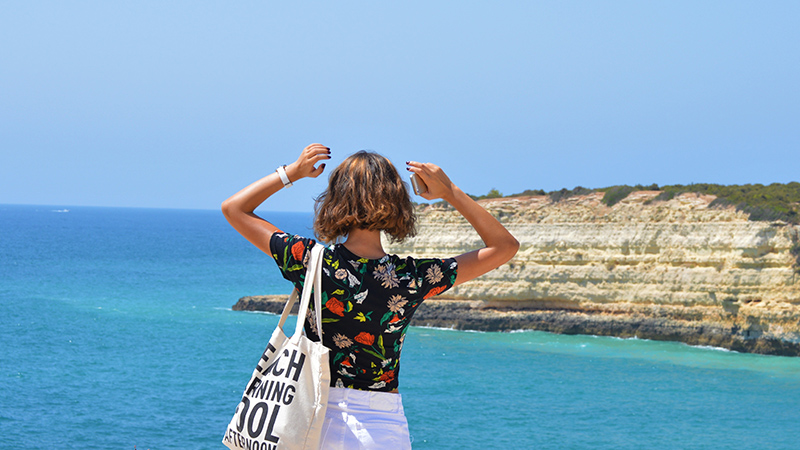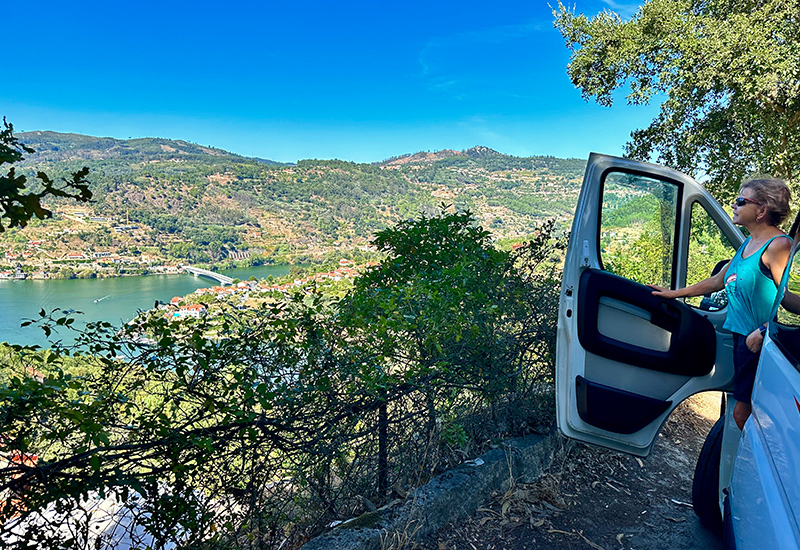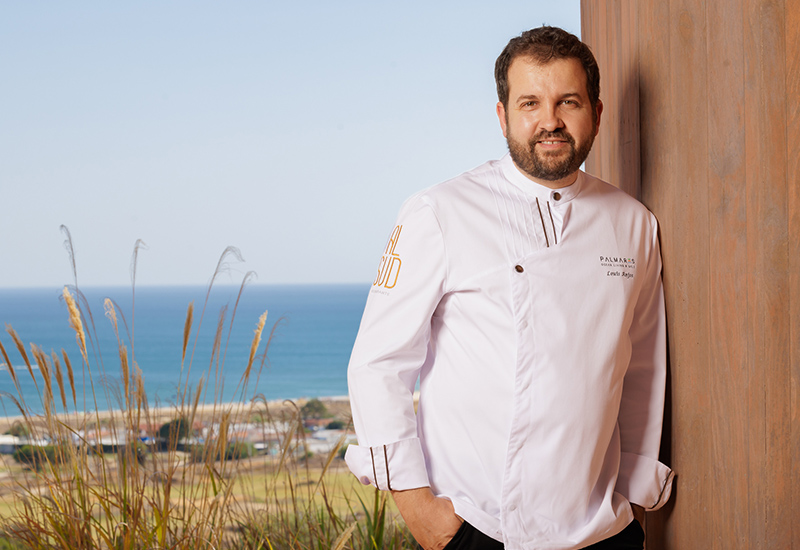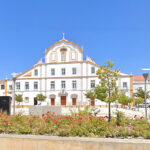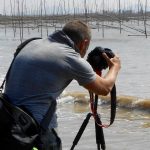Dr Simon Hudson is a tourism professor and consultant living in the Algarve. He has written 10 books (including the recently published COVID-19 & Travel), and over 100 research articles and book chapters. He has spent the last 30 years teaching at universities in the UK, Canada, and America, and has held visiting academic positions in Austria, Switzerland, Spain, Fiji, New Zealand and Australia. Simon has also taught three times on Semester at Sea, a floating university that circumnavigates the world.
The professor is currently working on a project for the United Nations Development Program from his home in Praia da Luz. The title is ‘Designing the Future of Tourism in Asia and Pacific’, the purpose of which is to provide assistance and guidance to the tourism sector in terms of recovering from this pandemic and future crises.
Dr Hudson has written 30 case studies looking at how the tourism sector has adapted to the pandemic in various countries and the recovery progress of each destination. “It is fascinating to see how different countries have dealt with the problem in different ways”, he observes. “Half of the case studies are about countries in the Asia Pacific region, but I also wanted to look at other countries around the world in order to get a global perspective and for benchmarking purposes.” The United Nations will be publishing his final report in the next few months.
One of the case studies was on Portugal, and Tomorrow will be publishing his findings in upcoming editions.
The Impacts
Until the pandemic hit, Portugal’s tourism sector had been riding a wave. Between 2010 and 2012, Portugal received an average of 14 million international visitors per year, and this number had reached 27 million people in 2019. This almost doubling of tourist arrivals in less than a decade meant that tourism and related industries accounted for 17% of the GDP, 19% of employment and 20% of total exports. In 2020, however, impacted by the pandemic, Portugal registered only 10.6 million tourists and, although domestic tourism allowed some recovery in the summer months, the lack of foreign visitors contributed significantly to the 7.6% economic contraction registered that year for the country. In 2020, there was a decrease of around 70% in passenger movement at Portuguese airports. The Algarve airport of Faro recorded the largest decrease in the number of passengers handled, with a drop of 75.5%.
According to the World Travel & Tourism Council, Portugal’s travel and tourism sector’s contribution to GDP dropped 56% in 2020, wiping out €21 billion from the nation’s economy. Its economic contribution fell from €37 billion (17.1%) in 2019 to €16 billion (8.1%) just 12 months later. The year of damaging travel restrictions, which brought much of international travel to a grinding halt, resulted in the loss of 160,000 travel jobs across the country. Gloria Guevara, President & CEO WTTC, said: “The loss of 160,000 travel and tourism jobs in Portugal has had a terrible socio-economic impact, leaving huge numbers of people fearing for their future. However, the situation could have been far worse if it were not for the government’s job retention scheme that saved thousands of jobs under threat, and helped to halt the total collapse of the sector.”
The events market in Portugal also recorded a disastrous year, with nearly 90% of events cancelled in 2020. Towards the end of the year, the Portuguese Association of Music Festivals (Aporfest) called on the government to come up with a ‘strategy’ for the sector, which they claimed was at risk of collapse.
How Portugal responded to the COVID crisis
The response to the pandemic cost the Portuguese government around €4.6 billion in 2020, according to the Directorate-General for the Budget (DGO). This was due to the loss of €1.4 billion in revenue and an increase of €3.2 billion in expenditure.
The ‘lay-off’ scheme was the measure with the greatest impact on expenditure (€823.2 million), followed by expenditure associated with health (€549.9 million), namely Personal Protective Equipment (PPE) and medicines. The lay-off scheme was a temporary measure aimed at maintaining jobs in companies that were forced to close or put employees on reduced hours. The scheme continued well into 2021 due to the prolonged impact of the pandemic, although some in the industry said it was inadequate. The Algarve hotelier association (AHETA) for example, said the measures lacked “ambition” and would do little to help the region’s struggling companies.
Three specific lines of loans were also allocated to support the tourism and hospitality sector: €600 million for restaurants or other similar food service operations; €900 million for tourism operations: and €200 million for travel agents, tourist operators, event organisers and similar operations. The Government, with various partners, also launched programs to help the Portuguese entrepreneurial ecosystem regain its footing in the wake of the COVID-19 pandemic. One incubator program was launched in partnership with Turismo de Portugal and invested in innovative tourism-based projects. Applicants could apply for up to €100,000 per project which had to have the potential to contribute to the development of the tourist offering in Portugal and to improve the competitiveness of the sector.
The Portuguese government implemented other measures to support the tourism sector during the pandemic. In May 2020, Secretary of State for Tourism in Portugal, Rita Marques, announced that they would give vouchers to tourists forced to cancel their holiday plans because of the pandemic, allowing them to reschedule trips through to the end of 2021. “We are being absolute pioneers in the European context. Our priority is to safeguard consumer rights and the interests of economic operators, according to the principle of ‘don’t cancel, postpone’,” said Marques. Turismo de Portugal also launched a travel insurance program for international tourists visiting the country. Coverage included medical, surgical, pharmaceutical and hospital expenses associated with COVID-19, as well as expenses that might occur for cancellation, interruption or extension of trips. “The objective is to guarantee that everyone who visits Portugal can travel around the country safely and with confidence,” said Marques.
In the summer of 2020, as the industry tentatively started back up again after lockdown, changes in the service delivery process had to be communicated to stakeholders and employees in a timely fashion. Turismo de Portugal created a new ‘Clean & Safe’ certification for the country’s hotels, tourism enterprises, entertainment companies and travel agencies. Tourism organisations could apply for this stamp of approval to show that they were compliant with hygiene and cleaning requirements for the prevention and control of COVID-19 and other possible infections. The idea was to reinforce visitors’ confidence in the safety of the destination. Companies could use the Clean & Safe seal, either physically on their premises or on digital platforms.
Portugal’s Directorate-General for Health (DGS, the national health authority) also created online training programs for employees in the industry, including providing information to guests and offering protective equipment like masks. “We realised from the beginning of this crisis that we needed to support three communities: travel companies, tourists and citizens,” said Luís Araújo, President of Turismo de Portugal, when asked about the reasons for Clean & Safe. He said the lockdown period “gave us time to build trust and prepare for the new normal”. To help businesses cope with the sanitary demands of reopening, the government provided €5,000 per company through its ‘Adaptar’ program to cover the purchase of disinfecting materials, masks, signs, and acrylic screens. The program was introduced to offer support for micro, small and medium-sized companies in adjusting to new regulations.
In the final part of this series, Dr Hudson examines how Portugal Tourism used social media to fight back and possible outcomes to the COVID pandemic on the industry. Don’t miss it in the September edition.
Portugal’s prospects for recovery compared to other tourism destinations around the world
The tourism industry has been devastated by the COVID-19 pandemic. Worldwide, tourism suffered its worst year on record in 2020, with international arrivals dropping by 74%. The first half of 2021 has showed little improvement. In countries like Portugal, where tourism is an important source of foreign exchange earnings (international visitors spent €22.4 billion in 2019), the sudden fall in demand has had severe economic and social consequences within and beyond the tourism sector. However, 18 months after the first lockdown in Portugal, there is light at the end of the tunnel, and there are five key reasons why the country’s tourism sector may recover quicker than others.
ABILITY TO ADAPT
Firstly, the tourism sector in Portugal has adapted well,and ‘COVID-aptability’, as I call it, has been critical (for all of us) in surviving this pandemic. The first two articles in this series explained how the government adapted by focusing on domestic tourism, investing in technology and tourism innovation, and by swiftly implementing health and safety protocols. Individual businesses in the tourism sector in Portugal also recognised the need to adapt. A Fado club in Lisbon, for example, adapted to lockdown restrictions by launching Brunch Fado mornings. The Fado brunch started at 6.30 am at the Clube de Fado in the Alfama neighbourhood of the capital, and ended at 12.30 pm, just in time for the lockdown at 1 pm. Money from the tickets went to União Audiovisual, an informal collective helping workers from the audiovisual industry affected by the pandemic. “The idea arose from the need to say that we are alive, to show that Fado is alive but that, like other cultural activities, it needs everyone’s help,” said Nuno Fernandes, director of the Fado & Food Group.
MARKETING
Secondly, destination marketers have kept Portugal top of mind during the crisis. Marketing in the midst of a global disaster is always a delicate proposition but previous crises have taught us that marketing is more important than ever at this time. At the beginning of the pandemic, Turismo de Portugal transformed the award-winning campaign known as “Can’t Skip Portugal”, launched in 2007, to “Can’t Skip Hope”. The idea was to give travel lovers the inspiration to explore Portugal once travel restrictions had lifted and people could travel safely. An emotional video stressed the need for social isolation at the time of the pandemic, while portraying breathtaking images from across the country. Once travel restrictions started to ease, promotions were more of a call to action. For example, in October 2020, the Algarve announced a “Golf clubs are on us” campaign. The idea was to incentivise golf tourists to visit, with savings of about 100€ on a direct international flight to Faro. The free golf bag offer was applied to bookings made with a licensed golf tour operator for a minimum five-night stay. More recently, the Algarve tourism board launched a digital campaign in August in a bid to encourage staycationers and Spanish tourists to the region.
DIVERSIFICATION
Thirdly, before the pandemic, Portugal recognised the need to diversify and attract people to ‘live, work, and play’ (instead of just play). For many destinations around the world, the pandemic has highlighted an over-reliance on tourism and, as a consequence, in the last 18 months, top tourism destinations like Barbados, Dubai, Costa Rica and Hawaii have all introduced new visa programs targeting long-stay digital nomads. However, Portugal was ahead of the game, and for the last decade, has had programs in place to attract overseas investment and talent. In fact, a report published in February 2021 by the financial rating agency DBRS expected the tourism sector in Portugal to recover to pre-pandemic levels because of these reasons. “The characteristics that, before the crisis, made Portugal attractive to visitors globally will remain for a long time after the pandemic,” the report stated. Portugal also continues to see success luring international retirees.
Always attractive to migrating British ex-pats, the net was cast wider across Europe and North America in 2011 by means of irresistible tax rebates packaged into the government’s Non-Habitual Residents Regime. “Our tax policies were very successful at catching the attention of high net worth individuals, independent professionals and retirees, and because of that, they started visiting and then moving in,” says Pedro Fontainhas, Managing Director of the Portuguese Association of Resorts (APR). “At the same time, there was a lot of investment in new property, infrastructure etc, with everything converging to make Portugal the wonderful destination it is.” The desire to relocate to Portugal has been heightened by the restrictions of the pandemic and the resulting influx has contributed to the real estate and home renovation boom.
THE CHANGING TRAVEL MARKET
Fourthly, Portugal is well-positioned to appeal to tomorrow’s travellers.It is increasingly clear that the tourism industry is not going back to normal. Instead, there will be a ‘new normal’ – characterised by an emphasis on sustainability, health and safety, technology and a low-touch economy. Travellers have changed – the traveller of the future will be more cautious than before, and the public health conditions and hygiene standards of destinations and tourist sites will become a top priority.
There are indications that we will also see an increased demand for health and wellness travel, ethical tourism, wilderness trips, private accommodation, and visits to national parks. Countries like Portugal may, therefore, benefit more than others post-pandemic, as they can cater to all these demands. Tourism destinations in Portugal have already implemented sustainability measures as they look forward to a post-COVID world. For example, from the end of 2021, Lisbon will only receive cruise ships moored with dockside electricity to reduce diesel pollution, and Portoismoving forward with policies to encourage the use of public transport and is introducing more cycle lanes in the city to diminish traffic.
THE KEY TO RECOVERY
Finally, high vaccination rates and digital health certificates could hold the key to recovery for the tourism industry worldwide, and Portugal is not only working its way to a vaccination level that will allow the country to open up to all travellers, but has also swiftly embraced the EU Digital COVID Certificate. International visits will probably not return to pre-pandemic levels for a few years, but those in the industry that have managed to ride out the storm can look forward to the future with some optimism.
